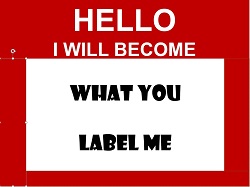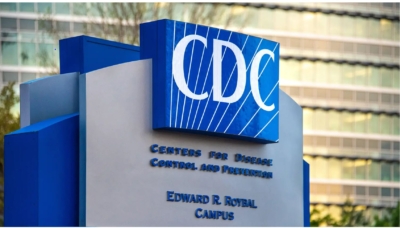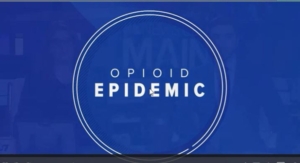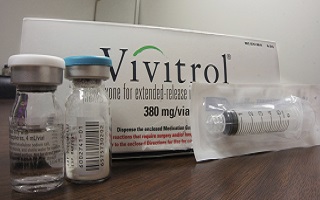There is a significant disconnect between our knowledge of addiction and mental health disorders and the language that exists today much of which is rooted in a prior century.
Language influences perception which informs policy and standards. Ask yourself when you use a derogatory term such as “junkie” or “dope fiend” whether you would like that label attached to you. Until we change our language, we will not change our societal perception, substance use treatment or law enforcement policies and we will preclude the possibility of coming out from the shadows of a marginalized subculture. We are all culpable!
~Tim Cheney

April 14, 2022 9:17 AM
Bias Minimizing Technology Reveals 3 Out of 4 Americans Believe That Society at Large Views Drug and Alcohol Dependent Individuals as Having Moderate, Low, or No Chance of Maintaining Recovery
Toronto, Ontario–(Newsfile Corp. – April 14, 2022) – An online study of over 30,000 Americans finds significant bias towards people who use drugs and alcohol, as seven out of 10 (71%) believe that society considers individuals who use drugs problematically to be outcasts or non-community members. Recognizing 2021’s heartbreaking milestone of 100,000 drug overdose deaths in a 12-month period, global trend-tracking and prediction technology company RIWI, along with Eleyvst and nonprofit PRO-A, generated a new report regarding perceptions of substance use, addiction, and recovery stigma in society. The report found 73 percent of respondents believed that society at large views individuals who are dependent on drugs as having moderate, low, or no chance of maintaining recovery. Click here to access the report: https://riwi.com/wp-
Stigma is a significant barrier to quality of life for people with a history of addiction, impacting their ability to seek medical care, addiction treatment, recovery support and social services. It also makes effective policy change more difficult. The survey showed that, despite major efforts from the governmental and nonprofit sectors, stigma is still elevated and common, as 74 percent felt that society considers individuals who use drugs problematically as somewhat, mostly, or entirely responsible for their drug use. Worse, 71 percent believe that society considers individuals who use drugs to be outcasts or non-community members, which deters people with severe substance use disorders from accessing life-saving help.
“We are excited to continue to deploy RIWI’s innovative technology to measure perception and drive change that improves the lives of people who use drugs, those with substance use disorders, and those in recovery,” said Sean Fogler, MD, one of the researchers on the report and a co-founder of Elevyst, a comprehensive consulting group specializing in helping organizations of varying sizes further their community and public health initiatives. “Societal substance use and recovery stigma harms all of us. This first nation-wide report uncovers the perceptions that are a barrier to the development and implementation of effective policies and strategies to end overdose and protect the health and humanity of people who use drugs.”
The study showed higher perceived societal stigma indices in the low-middle and upper-middle class than the poorest and richest demographics; for white people than non-white people; for women than men; for older people than younger people; and for city residents than suburban or rural residents. Comparing the states with statistically significant and comparable numbers of respondents, Pennsylvania had the highest reported level of stigma, while Illinois had the lowest.
“While we have made progress in America elevating recovery and making it easier to acknowledge that we can and do recover, our survey shows we have a long way to go until we live in a stigma-free society and together are working towards achieving that critical goal,” said William Stauffer, LSW, one of the researchers on the report and the executive director of statewide non-profit grassroots advocacy organization, PRO-A, dedicated to supporting individuals in recovery and educating the public on addiction and recovery.
“We harnessed RIWI’s Random Domain Intercept Technology to uncover the extent to which multi-faceted stigma exists, effectively setting the foundation for a much larger program of research that we hope will encourage data-driven approaches to addressing societal stigma,” said Rikki Sargent, Ph.D., Social Psychologist, Research and Strategy Lead at RIWI, and one of the researchers on the report. “We know that perceived societal stigma is a barrier to help-seeking, equality, and the implementation of policies and support systems that best serve people who use substances and those in recovery. Stigma is complex, both in its development and manifestation, and in determining the best way to address it. Studies like this are key to making progress in this space.”
Methodology
The research was conducted by harnessing RIWI’s patented Random Domain Intercept Technology (RDIT), a form of online intercept sampling designed to include a demographically diverse and regionally broad audience across the United States. Leveraging RDIT, individuals surfing the Web have a chance of landing on a dormant domain temporarily being managed by RIWI. RIWI then intercepts the Web user and presents them with a RIWI survey. Once exposed, RIWI validates the country of the Web user and delivers an appropriate survey. Web users may choose to participate in the survey safely and anonymously. No identifiable information is collected (e.g., names, email), no incentives for participation are provided, and respondents may end their participation at any time. These security measures/methodological characteristics encourage individuals to respond honestly (avoiding social desirability bias and incentive bias).








Leave A Comment